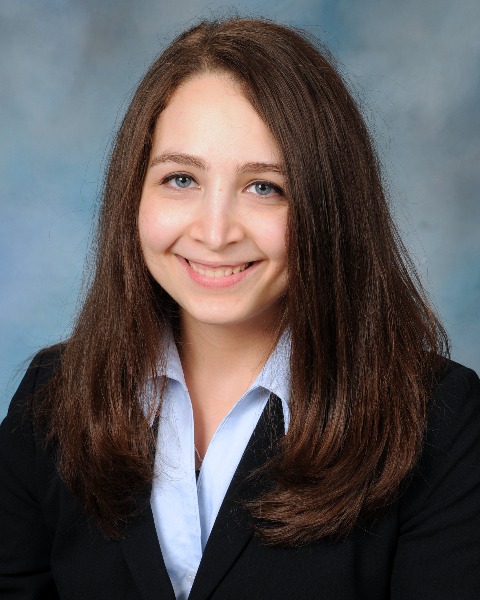Medical Education: Resident
Category: Abstract Submission
Medical Education 9 - Medical Education: Resident II
239 - A Multimodal Curriculum to Improve Pediatrics and Internal Medicine Residents’ Knowledge in the Care of Youth with Developmental Disabilities
Sunday, April 24, 2022
3:30 PM - 6:00 PM US MT
Poster Number: 239
Publication Number: 239.333
Publication Number: 239.333
Alexis Tchaconas, Mount Sinai, New York, NY, United States; Guillaume Stoffels, Icahn School of Medicine at Mount Sinai, New York, NY, United States; Joseph Truglio, Icahn School of Medicine at Mount Sinai, Maplewood, NJ, United States

Alexis Tchaconas, MD
Resident Physician
Mount Sinai
New York, New York, United States
Presenting Author(s)
Background: As the life expectancy of individuals with developmental disabilities (IDDs) approaches that of the general population, a growing number of IDDs are aging out of pediatric care. The transition from pediatric to adult care is rarely initiated with sufficient time to identify adult providers and to establish guardianship, if needed. While the ACGME mandates pediatric residency programs to provide trainees with a 1-month rotation in developmental-behavioral pediatrics, there are few published curricula to address transition to adult care or guardianship for IDDs. Internal medicine residents do not currently have ACGME-required educational experiences on IDDs and it is not universally taught in medical school.
Objective: To increase pediatrics and internal medicine residents’ knowledge of common developmental disabilities, guardianship and transitions of care for IDDs by designing and delivering a multimodal workshop.
Design/Methods: Ninety-one pediatrics and internal medicine residents participated in the workshop, a 1-hour session with interactive didactics, clinical cases and role plays that use two common developmental disabilities, autism and cerebral palsy, to teach about school services, applying for guardianship and transitioning care from pediatric to adult providers. We assessed changes in knowledge among residents via questionnaires at baseline compared to 3 timepoints after the workshop: immediately, 2-months and 6-months after.
Results: Sixty-six of the 91 residents (73%) who participated in the workshop responded to the baseline questionnaire, a majority of whom were PGY-2 internal medicine residents with no prior experience working with IDDs (Table 1). Of the 13 pediatrics trainees, 38% completed a developmental-behavioral pediatrics rotation. Among all trainees, there was a significant increase in knowledge from pre- to immediate post-workshop in the areas of transitions of care (5 to 71%, p< 0.0001), school services (32 to 67%, p=0.002) and guardianship (23 to 60%, p=0.0003). Pre-workshop to 6-months post-workshop, the significant increase in knowledge of transitions of care persisted (5 to 24%, p=0.008). When all knowledge questions were combined into a single score, there were significant increases in overall knowledge from baseline to immediate post-workshop (p < 0.0001) and baseline to 6-months post-workshop (p=0.04).Conclusion(s): We developed an interactive multimodal workshop on issues specific to young adults with developmental disabilities, which led to significant increases in internal medicine and pediatrics residents’ knowledge, both immediately and 6-months after the workshop.
CVAlexis Tchaconas_CV_2021.pdf
Table 2: Change in Knowledge by Topic
Objective: To increase pediatrics and internal medicine residents’ knowledge of common developmental disabilities, guardianship and transitions of care for IDDs by designing and delivering a multimodal workshop.
Design/Methods: Ninety-one pediatrics and internal medicine residents participated in the workshop, a 1-hour session with interactive didactics, clinical cases and role plays that use two common developmental disabilities, autism and cerebral palsy, to teach about school services, applying for guardianship and transitioning care from pediatric to adult providers. We assessed changes in knowledge among residents via questionnaires at baseline compared to 3 timepoints after the workshop: immediately, 2-months and 6-months after.
Results: Sixty-six of the 91 residents (73%) who participated in the workshop responded to the baseline questionnaire, a majority of whom were PGY-2 internal medicine residents with no prior experience working with IDDs (Table 1). Of the 13 pediatrics trainees, 38% completed a developmental-behavioral pediatrics rotation. Among all trainees, there was a significant increase in knowledge from pre- to immediate post-workshop in the areas of transitions of care (5 to 71%, p< 0.0001), school services (32 to 67%, p=0.002) and guardianship (23 to 60%, p=0.0003). Pre-workshop to 6-months post-workshop, the significant increase in knowledge of transitions of care persisted (5 to 24%, p=0.008). When all knowledge questions were combined into a single score, there were significant increases in overall knowledge from baseline to immediate post-workshop (p < 0.0001) and baseline to 6-months post-workshop (p=0.04).Conclusion(s): We developed an interactive multimodal workshop on issues specific to young adults with developmental disabilities, which led to significant increases in internal medicine and pediatrics residents’ knowledge, both immediately and 6-months after the workshop.
CVAlexis Tchaconas_CV_2021.pdf
Table 2: Change in Knowledge by Topic

